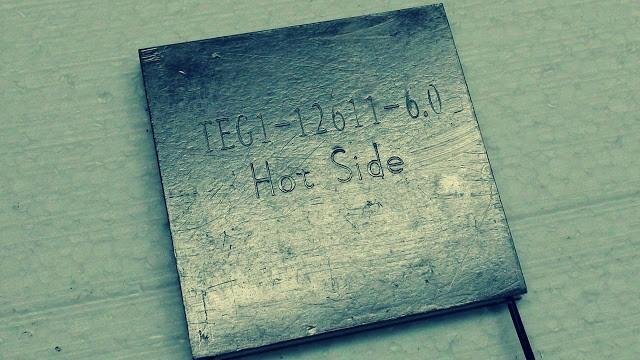Termoelektrik, How To Turn Heat Energy Into Electricity

The development of Termoelectric technology that converts heat into electricity today continues to be developed non-stop. Researchers are studying the use of quantum mechanical effects to convert heat into electrical energy. This technique seems to be used for industrial scale and home electronic devices. In the future, electric energy will be generated from the heat of the car engine or aircraft jet engine.
Many power generation technologies are generated from waste, such as the Carbon Dioxide energy power plant. Scientists explain how to maximize the use of magnets on nickel and platinum composites. This is intended to amplify the output voltage 10 times or greater. This composite material is not a thin film like the previous research, but a thick piece that could be useful for future electronic device components.
Termoelektrik, Turning Heat into Electricity
Currently there are many outstanding electrical and mechanical devices, one of which car engines directly generate heat from the operating system. This heat is considered waste that just wasted, but if observed can produce electrical charges. The development of Thermoelectrics Solid-state (Termoelectric) technology aims to treat 'waste heat' through materials specifically designed to generate energy and improve overall device efficiency.

During this time, more than half the energy generated from the heat of various devices has been wasted into the atmosphere, thus further adding to the problem at Earth's temperature. The development of Thermoelectrics Solid-state technology can help utilize thermal energy into electricity. This device has moving parts, is not easy to wear, strong, and does not require maintenance. But the existing devices are still too expensive and inefficient for the general public. So scientists are trying to create more efficient products and affordable prices.
In 2012, Joseph Heremans has proved that magnetic fields can enhance the effects of quantum mechanics called the Seebeck spin effect. This effect can increase the output voltage resulting from thin films made of Nano-structured materials. Currently Termoelectric devices have upgraded its output resulting from a combination of nickel and platinum metals. And the simpler devices do not require Nanofabrication and can be easily upgraded to industrial scale.
Scientists use the same technique using thick pieces of material, and regulate thermodynamics and thermoelectric. Basically, classical thermodynamics include steam engines as fluids or jet engines and automobile engines that use air as a fluid. While in technology
Termoelektrik uses electrons as fluids that function as Quanta Magnetization or Magnon. Magnon-based thermodynamic studies until now have always been done using thin films that produce very little electrical voltage.
The same technique is also used on platinum pieces larger than films made from composite materials. It is used to maximize the waste heat utilization process. This research will inspire further research that will create applications for waste heat generators, including car and jet engines. But it seems constrained in the price, because the material platinum price is still quite expensive.
Reference
One step closer to reality: devices that convert heat into electricity, 22 Dec 2016, by Ohio State University.Observation of spin Seebeck contribution to the transverse thermopower in Ni-Pt and MnBi-Au bulk nanocomposites. Nature Communications, 2016; 7: 13714 DOI: 10.1038 / ncomms13714Giant spin Seebeck effect in a non-magnetic material. Nature, 2012; 487 (7406): 210 DOI: 10.1038 / nature11221Thermoelectric Seebeck module, image by Wikimedia Commons